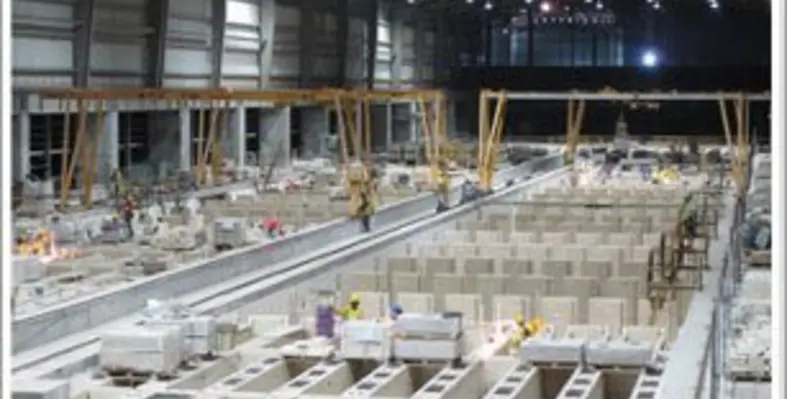Emirates Aluminium (Emal) is nearing final approval for an expansion of its aluminium smelter in Abu Dhabi at a cost of up to US$4.5 billion as it prepares for strong global demand growth in the next four years.
The expansion which is phase two at the smelter will see the capacity of the plant double to 1.5mn tonnes of aluminium annually.
"We expect to start with phase two in probably three weeks time. We are now finalizing all the commercial obligations and contracts," Saeed Al Mazrooei, Emal's chief executive officer and president was quoted as saying by Zawya Dow Jones.
Emal's expansion plans require capital expenditure in the range of US$3.5 billion to US$4.5 billion pending the outcome of final studies into the project, Al Mazrooei stated.
First output from the smelter's second phase is due to start by the end of 2013, with full production capacity to be reached by the end of 2014, he added. SNC-Lavalin Group Inc. (SNC.T) is consulting Emal on the front-end engineering and design, or Feed, for phase two.
Emal is presently working on securing raw material supplies for phase two, Al Mazrooei said, and also pushing ahead with an upgrade of the existing plant that will raise annual output by about 7 per cent.
"By the end of 2011 we will have an increase in our production by an extra 50,000 metric tonnes, so we will be producing almost 800,000 tonnes by probably mid-next year," Mazrooei added.
Financing for the expansion will be arranged by Emal's shareholders, Al Mazrooei said, adding that any decision to launch an initial public offering in the company would have to come from them.
The Emal complex, which covers a six sq-km site, will be the world's largest single-site aluminium smelter when fully complete.
Emal, a joint venture between Abu Dhabi-government investment firm Mubadala Development Co. and Dubai Aluminium Co., or Dubal, started production of the first phase of its smelter, which cost US$5.7 billion to implement, in December 2009 and reached full production capacity of 750,000 tonnes in January this year.







